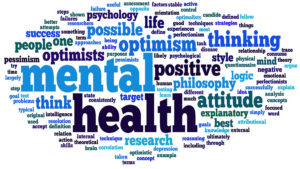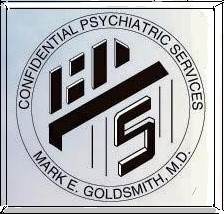Depression

Depression is more than just feeling sad or going through a rough patch. It’s a serious mental health condition that requires understanding, treatment and a good recovery plan. With early detection, diagnosis and a treatment plan consisting of medication, psychotherapy and lifestyle choices, most people no longer have symptoms. But left untreated, depression can be devastating, both for the people who have it and for their families.
Some people have only one episode in a lifetime, but for most people depression recurs. Without treatment, episodes may last a few months to several years. People with severe depression can feel so hopeless that they become a risk for suicide.
An estimated 16 million American adults—almost 7% of the population—had at least 1 major depressive episode last year. People of all ages and all racial, ethnic and socioeconomic backgrounds can experience depression, but it does affect some groups of people more than others. Women are 70% more likely than men to experience depression, and young adults aged 18–25 are 60% more likely to have depression than people aged 50 or older.
Getting a comprehensive evaluation is important. Underlying medical issues that can mimic a major depressive episode, side effects of other medications (like beta blockers or antihypertensives) or any other medical causes need to be ruled out. Understanding life stressors and prior responses to treatment effort can help shape a good treatment plan. Understanding how any co-occurring conditions fit into the diagnostic picture also informs treatment options.
Symptoms
For most people, depression changes how they function day-to-day.
- Changes in sleep. Many people have trouble falling asleep, staying asleep or sleeping much longer than they used to. Waking up early in the morning is common for people with major depression.
- Changes in appetite. Depression can lead to serious weight loss or gain when a person stops eating or uses food as a coping mechanism.
- Lack of concentration. A person may be unable to focus during severe depression. Even reading the newspaper or following the plot of a TV show can be difficult. It becomes harder to make decisions, big or small.
- Loss of energy. People with depression may feel profound fatigue, think slowly or be unable to perform normal daily routines.
- Lack of interest. People may lose interest in their usual activities or lose the capacity to experience pleasure. A person may have no desire to eat or have sex.
- Low self esteem. During periods of depression, people dwell on losses or failures and feel excessive guilt and helplessness. Thoughts like “I am a loser” or “the world is a terrible place” or “I don’t want to be alive” can take over.
- Hopelessness. Depression can make a person feel that nothing good will ever happen. Suicidal thoughts often follow these kinds of negative thoughts—and need to be taken seriously.
- Changes in movement. People with depression may look physically depleted or they may be agitated. For example, a person may wake early in the morning and pace the floor for hours.
- Physical aches and pains. Instead of talking about their emotions or sadness, some people may complain about a headache or an upset stomach.
To learn more about depression, visit NAMI.org.

